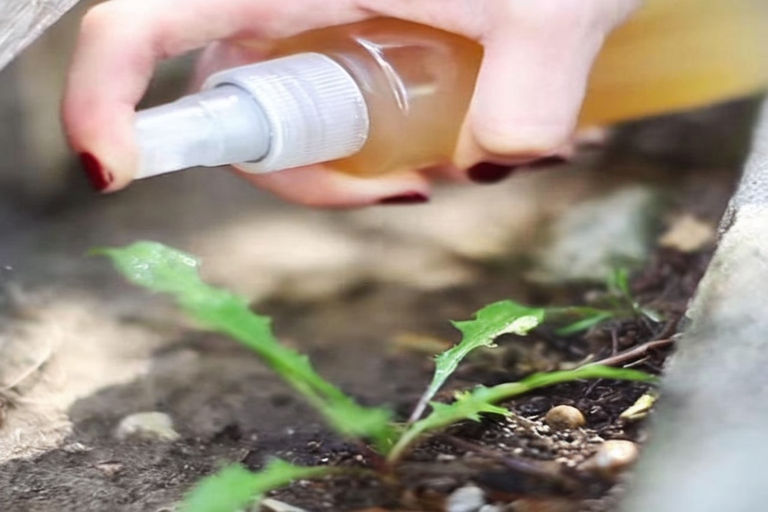
Apple cider vinegar has long been celebrated for its versatility and numerous health benefits for humans, but its potential in gardening is equally remarkable. Picture this: a gardener filling a bottle with apple cider vinegar and sprinkling it across their garden beds. The reason behind this seemingly unconventional practice is indeed fascinating and underscores the incredible power of this humble kitchen staple.
At the heart of apple cider vinegar’s efficacy in gardening lies its rich composition. This amber-colored liquid contains acetic acid, a natural compound known for its antimicrobial properties. When applied to the soil, apple cider vinegar helps create an environment that discourages the growth of harmful pathogens and pests, thereby promoting plant health and vigor.
Moreover, apple cider vinegar serves as a natural fertilizer, enriching the soil with essential nutrients such as potassium, phosphorus, and calcium. These nutrients play pivotal roles in various physiological processes within plants, including growth, flowering, and fruit production. By incorporating apple cider vinegar into their gardening routine, enthusiasts can foster nutrient-rich soil that supports robust plant growth.
Furthermore, apple cider vinegar acts as a pH regulator, helping to maintain optimal soil acidity levels for plant growth. Many plants thrive in slightly acidic soil conditions, and regular application of apple cider vinegar can help achieve and sustain this balance. By ensuring the pH balance of the soil, gardeners can enhance nutrient uptake by plants, leading to healthier and more productive yields.
In addition to its direct benefits to soil and plant health, apple cider vinegar also serves as a potent natural herbicide. Its acetic acid content makes it an effective weed killer, especially for combating common garden nuisances like dandelions, clover, and crabgrass. By selectively applying apple cider vinegar to weed-infested areas, gardeners can effectively control unwanted plant growth without resorting to harmful chemical herbicides.
Furthermore, apple cider vinegar aids in the prevention and treatment of fungal diseases that commonly afflict plants. Conditions such as powdery mildew, black spot, and rust can wreak havoc on garden plants, leading to stunted growth and diminished yields. However, the antifungal properties of apple cider vinegar offer a natural solution to combat these ailments, safeguarding plant health and vitality.
Moreover, the use of apple cider vinegar in gardening aligns with principles of organic and sustainable cultivation practices. Unlike synthetic fertilizers and pesticides, apple cider vinegar is derived from natural sources and poses minimal risk to the environment, beneficial insects, and other organisms within the ecosystem. By embracing organic alternatives like apple cider vinegar, gardeners can reduce their ecological footprint and contribute to the preservation of biodiversity.
Furthermore, the affordability and accessibility of apple cider vinegar make it an attractive option for gardeners of all backgrounds and experience levels. Unlike specialized fertilizers and pesticides, which can be costly and require careful handling, apple cider vinegar is readily available at most grocery stores and requires minimal preparation before use. Its versatility and ease of application make it a valuable asset in any gardener’s toolkit.
Additionally, the use of apple cider vinegar in gardening offers a sustainable solution for managing household waste. Rather than disposing of excess apple cider vinegar, gardeners can repurpose it as a natural soil amendment and pest deterrent. This not only reduces waste but also harnesses the full potential of this multi-functional substance, further underscoring its value in sustainable gardening practices.
Furthermore, the benefits of apple cider vinegar extend beyond the garden, with implications for broader environmental and community well-being. By promoting healthy soil and plant growth, apple cider vinegar contributes to food security and resilience in local ecosystems. Additionally, its natural properties reduce reliance on synthetic chemicals, thereby minimizing pollution and promoting a cleaner, healthier environment for future generations.
In conclusion, the practice of using apple cider vinegar in gardening represents a testament to the remarkable versatility and efficacy of this household staple. From enhancing soil fertility and plant health to combating pests and diseases, apple cider vinegar offers a holistic solution for sustainable cultivation practices. By harnessing the power of nature’s bounty, gardeners can cultivate thriving gardens that nourish both body and soul, all while treading lightly on the planet.





